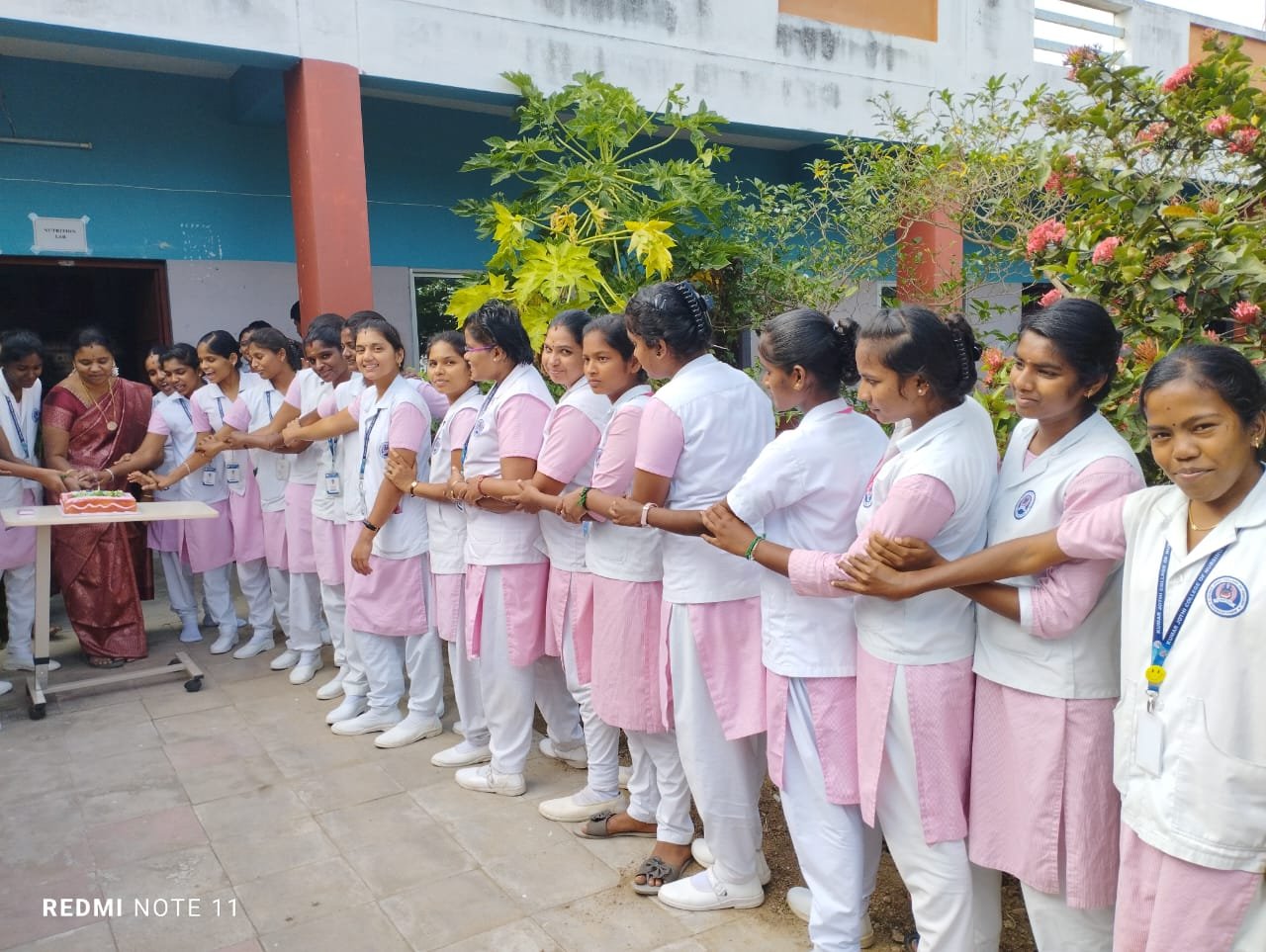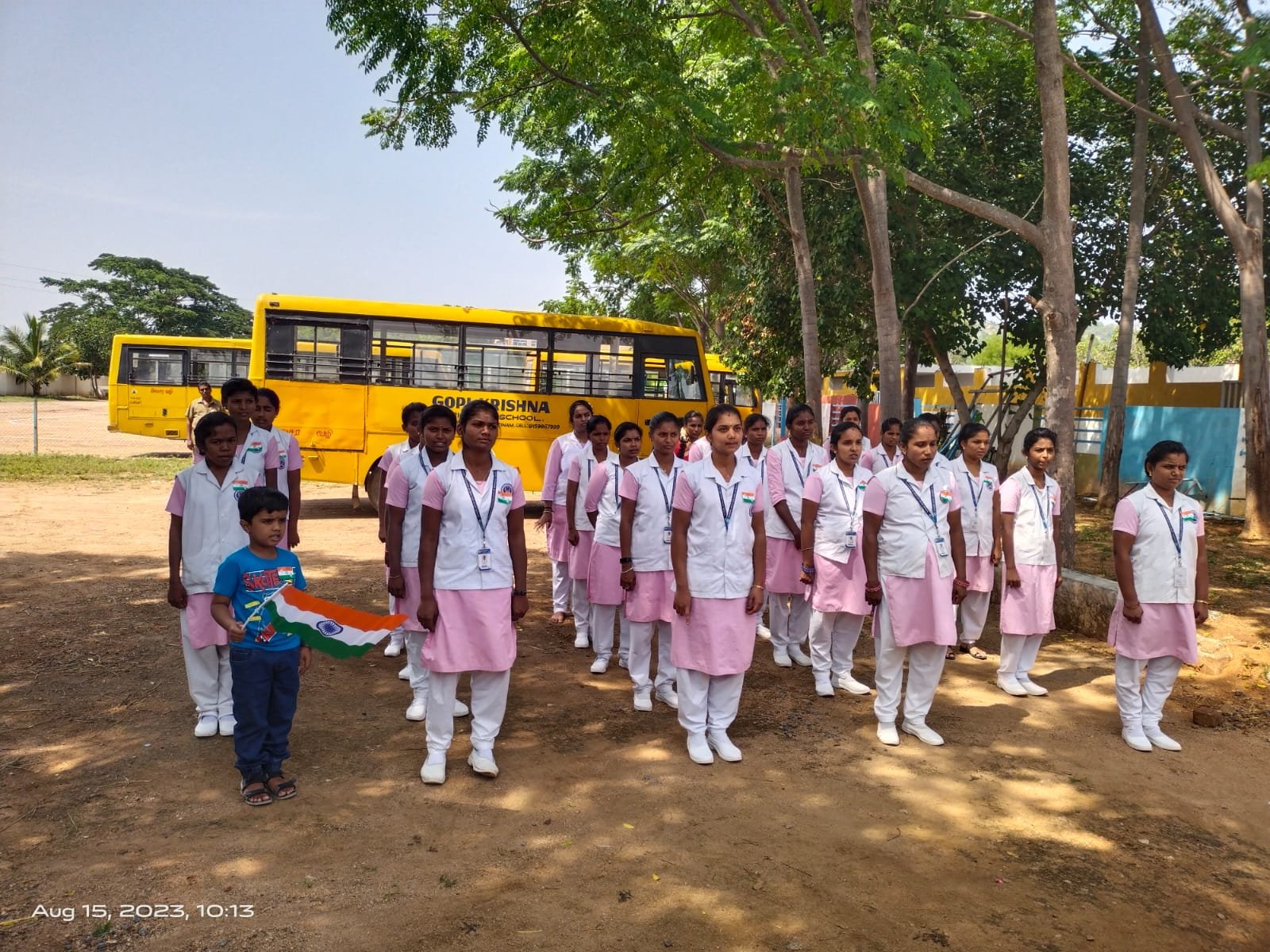-
 +91 9788 914 716 / 9442 809 909
+91 9788 914 716 / 9442 809 909
The Auxiliary Nursing Midwifery (ANM) program is a two-year diploma course designed to train healthcare professionals in basic nursing and midwifery skills. The curriculum encompasses theoretical knowledge, practical training, and clinical experiences to prepare students for a career in nursing and midwifery.

Introduction to nursing concepts and principles.
Basic nursing procedures and techniques.
Study of the human body structure and function.
Introduction to community health practices and healthcare delivery.
Basic principles of nutrition and its application in healthcare.



Essential skills and knowledge related to pregnancy, childbirth, and postnatal care.
Pediatric nursing principles and practices.
Basics of healthcare administration and management.
Clinical rotations and hands-on experience in healthcare settings.
Students undergo clinical training in hospitals, community health centers, and maternal care facilities to apply their theoretical knowledge in real-life healthcare scenarios.
Upon completion of the ANM diploma program, graduates can explore various career opportunities in the healthcare sector:
Work in hospitals, clinics, or nursing homes, providing direct patient care.
Engage in community health initiatives, providing healthcare services at the grassroots level.
Assist in childbirth, postnatal care, and reproductive health education.
Educate communities on basic healthcare practices and preventive measures.
Provide nursing care to patients in their homes, especially those with chronic illnesses or disabilities.
Work in geriatric care settings, offering healthcare services to the elderly.
Contribute to public health programs, disease prevention, and health promotion.
ANM graduates can pursue further studies like General Nursing and Midwifery (GNM) or Bachelor of Science in Nursing (B.Sc Nursing) to expand their career opportunities and advance in the field of nursing.
The ANM program equips individuals with the essential skills and knowledge needed to make a positive impact on healthcare delivery, maternal care, and community health.
The Diploma in Nursing for Village Health Nurses (VHN) is a specialized program designed to prepare healthcare professionals specifically for rural and village healthcare settings. The curriculum focuses on community health, preventive care, and providing healthcare services tailored to the unique needs of rural populations.

Understanding the principles and practices of community health.
Emphasis on preventive care and health promotion in rural areas.
Introduction to primary healthcare services.
Training in basic medical care and health education at the community level.
Specialized knowledge in maternal and child healthcare.
Training in antenatal care, postnatal care, and child health promotion.



Addressing specific health challenges prevalent in rural communities.
Strategies for disease prevention and health improvement in rural settings.
Understanding the impact of environmental factors on health.
Implementing measures for a healthy and safe environment in villages.
Clinical rotations in rural healthcare settings.
Fieldwork in villages to apply theoretical knowledge in real-world scenarios.
Graduates of the Village Health Nurse (VHN) program can explore various career paths, particularly in rural and community healthcare:
WWork in villages providing primary healthcare services, health education, and preventive care.
Engage in community health initiatives, including immunization programs and health awareness campaigns.
Specialize in maternal and child healthcare, offering services such as antenatal and postnatal care.
Educate communities on health issues, hygiene, and disease prevention.
Provide nursing care to patients in their homes, especially those with chronic illnesses or disabilities.
Coordinate healthcare services and programs in rural areas, collaborating with local authorities.
Work with non-governmental organizations to implement healthcare projects and initiatives in rural communities.
Plan and organize health camps in villages to provide basic healthcare services to the community.
Village Health Nurses (VHNs) who wish to advance their careers can pursue additional certifications or higher education in public health, community health nursing, or related fields.
The VHN program equips individuals with the skills needed to address the unique healthcare challenges in rural areas and make a meaningful impact on the health and well-being of village communities.